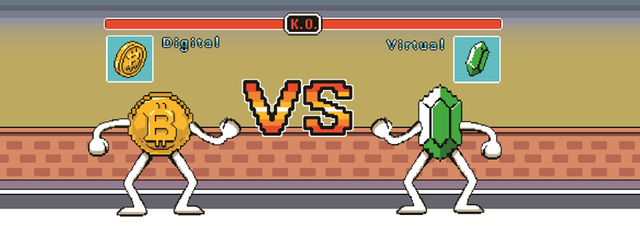Digital currency vs virtual currency

There’s a lot of misunderstanding around the terms “virtual” and “digital,” and people often mistakenly use them interchangeably. The reality is that virtual currencies are a type of digital currency, meaning that all virtual currencies are digital, but the converse is incorrect. Cryptocurrencies like Bitcoin are another type of digital currency, but they are in a separate category from virtual ones. Other types of digital currency also exist, and understanding which is which can become confusing.
Digital currencies are exactly what they sound like: currencies stored and transferred electronically. Any money based in 1’s and 0’s meets this definition; dollars stored in a bank account are supposed to be a representation of dollars actually held somewhere, whereas physical bitcoins are a representation of their digital counterparts. One could argue that our increasingly cashless society means that all currencies are becoming digital (sometimes referred to as “electronic money”), but they are not presented to us as such.
Real digital currencies have been around for some time. One of the first was E-gold, founded in 1996 and backed by gold. Another known digital currency exchange was Liberty Reserve, founded in 2006; it let users convert dollars or euros to Liberty Reserve Dollars or Euros, and exchange them freely with one another at a 1% fee. Both services were centralized, reputed to be used for money laundering, and inevitably shut down by the US government. Online payment services like PayPal (founded 1998) function similarly, based on traditional currency, except with more restrictions and government compliance (ensuring their survival). What's your views on this ?